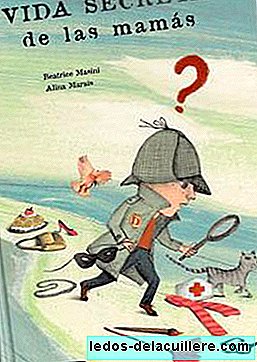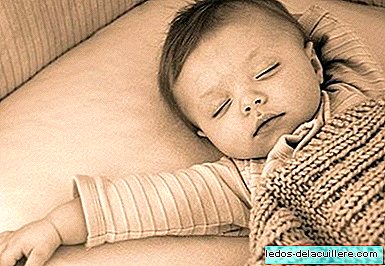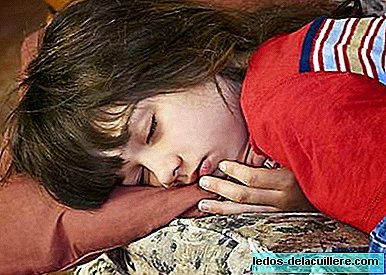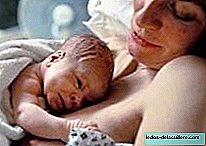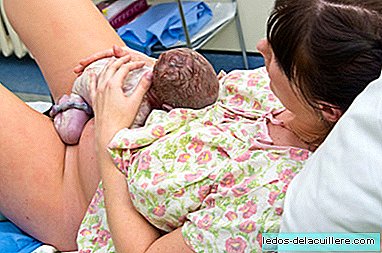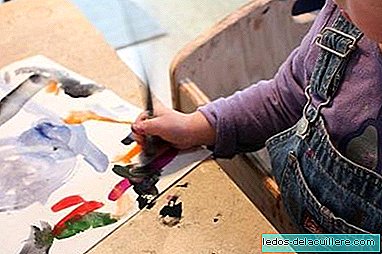
I think there is the possibility of suffering a PTSD as a result of childbirth. There are women who may suffer some of the symptoms only but not all.
Posttraumatic stress syndrome is that set of symptoms that develop or rather, can develop, after traumatic experience. We generally know it in relation to accidents, violent deaths, crimes, war or violations. But it can also develop as a result of a particularly complicated birth.
People who suffer are in a situation with no way out. They are distressed, they are angry. Very painful things have happened to them and suffer After a traumatic event, it goes through several phases and reacts according to the personality of each one and the magnitude of the trauma.
Some people get out of control, or, on the contrary, show excessive control of emotions. You can also have intrusive experiences, moments of omission, moments when what has happened is denied, or moments of stupor. These states alternate with states of good mental functioning. Very often it is accompanied by insomnia, feelings of sadness, anguish, and hopelessness.
As I said we know it in relation to violent events or enormous destruction. However, a traumatic experience can be any that involves the threat of death or serious injury to an individual or a loved one.
In this sense, it will be understood that posttraumatic stress disorder can develop as a result of childbirth. The mother has been able to feel violent, humiliated, fear for her own life or that of her son. The answer is fear, the feeling of helplessness or horror.
You can relive the experience with memories, nightmares or obsessive thoughts. The reaction may be to experience anxiety or panic when the event is remembered. But also denying and avoiding anything that remembers the trauma is a common reaction.
They may not want to talk about the fact, but women sometimes go through a stage where they continuously talk about the traumatic experience. Victims of this syndrome may feel angry, irritable and develop a state of hyperactive alertness.
For those who accompany them, especially for the family, it is important to keep in mind that their reactions are normal after a traumatic experience. It is not that the woman who goes through this process is not able to cope with what happened or that is giving too much importance. You have to understand and respect the pain you suffer.
A birth, pregnancy or postpartum period in which fear has been lived for one's own life or health or for that of the child can be serious. In relation to birth things happen that would traumatize anyone. If she feels that way or worrisome symptoms are detected, it is not convenient to minimize the situation.
Sometimes it is not a concrete fact of great importance, although fear of death or loss of health are the main ones. Also losing control over one's life or body, the hostility of those who have power over you or the absence of complete informed consent in medical procedures become lived with enormous repercussion.
Consider that the fear for the life or health of a child They are factors that can be devastating. Well, they are also with a newborn or a baby who has not yet been born. The separation of the baby is one of the circumstances that are lived with greater suffering.
There are not many studies on this subject, but personally, as I get to know better women who have had negative experiences in relation to their birth, I am more convinced that it would be very important to go deeper into this topic. I especially think of women who are diagnosed with postpartum depression, but who develop part of the same symptoms as people who suffer from this syndrome.
Parents too You can experience it. The suffering of the couple and the fear for their health and their life leave their mark. And this also happens if we talk about the son. That the health problem is overcome does not eliminate the imprint that fear can leave on parents.
But the environment Do not understand this. A woman who has had a serious problem in her pregnancy or childbirth, a woman who has been about to lose her child, or who has simply felt mistreated at those times is rarely accepted. They tell him that he should thank him if everything went well, that his son is alive and that that should be enough to forget the bad. But she doesn't have to live it that way. If your feeling is not understood, your isolation and your guilt may increase.
Not solving what happened and the feelings related to the trauma can become a serious problem that would create great tension in personal relationships. Yes the professionals They just prescribe medication the solution of the problem does not come. It may be that in these cases other psychological support measures are necessary, and above all, to achieve an accurate diagnosis that does not minimize the trauma suffered.
In Spain there are no groups that work specifically in this regard, but the Association The Birth is Ours, maintains a page and several mailing lists that could be of great use to families that are reflected in what I have explained.
In England if there is an Association that works in this field actively. Is about The Birth Trauma Association and its page is full of resources and stories of enormous interest.


